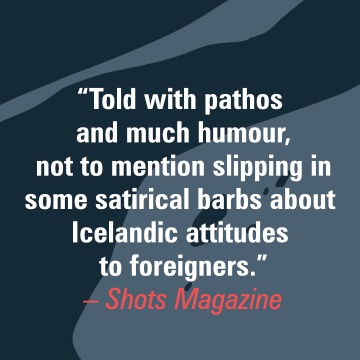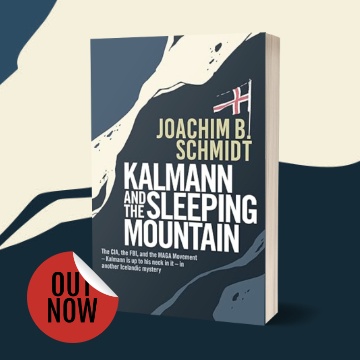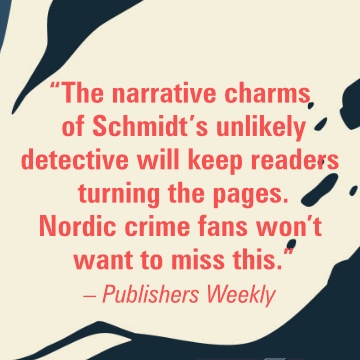
Halloween is almost upon us and if you’re looking for a bleak and suspenseful crime fiction treat, Dark Tides is one that doesn’t miss a trick. Written by Chris Ewan, it’s set on the Isle of Man and is about six friends who like to pull pranks on Hop-tu-naa – the Manx version of Halloween. They get into all kinds of deadly trouble. But more than that, for main character Claire Cooper the date has a much deeper meaning. It was on Hop-tu-naa that her mother disappeared.
You might have read some of Chris Ewan’s Good Thief’s Guide books in the past. Dark Tides is a very different beast. The humour and capers have been shed for a much darker, psychological storytelling approach. We invited Chris over to introduce us to Dark Tides and Claire Cooper…
First of all, can you tell us what crime fiction lovers will love about Dark Tides?
If you liked Safe House, I think you’ll enjoy Dark Tides. Like Safe House, Dark Tides is a thriller set on the Isle of Man, narrated in the first person, this time by the character of Claire Cooper. Dark Tides is a novel about Hop-tu-naa, the Manx equivalent of Halloween, but it’s also about the unsolved disappearance of Claire’s mother on Hop-tu-naa when Claire was just eight years old, and about the friends Claire makes as a teenager who mark every Hop-tu-naa by performing dares until, one year, a dare goes terribly wrong.
There’s this motif in the book’s timeline – everything happens on or around Hop-tu-naa, the Manx Halloween. What was it you found so interesting about this festival and how have you been able to use them in the book?
I wanted to experiment and see if I could structure a thriller over a span of nearly 20 years, while only ever narrating the action in the book on one recurring date. That date became Hop-tu-naa because I became fascinated with the festival and the customs associated with it. Like Halloween, Hop-tu-naa is celebrated on the 31 October, and in their modern form, the two festivals share a lot of common traits. But there are differences, too. For example, on the Isle of Man, people carve turnip lanterns instead of pumpkins and kids go from door to door singing ‘nonsense songs in return for cash or sweets instead of trick or treating. The songs vary across the island, but the most famous song is Jinny the Witch. It begins, ‘Hop-tu-naa/My mother’s gone away/and she won’t be back until the morning.’ It didn’t take me long to spot some seriously dark potential in those lyrics, hence the mysterious disappearance of Claire’s mother.
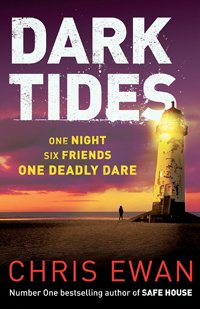
Aside from dark and stormy nights, pagan traditions and so forth, there’s also a look at whether or not Claire and her friends will account for their actions – some of which are pretty brutal. Would you say the book has a moral question or two for us, do you feel it’s a modern noir?
I’m not looking to convey a particular moral point. Claire and her friends get involved in a dare that I’m sure they all regret to varying degrees, and the repercussions are tough for them all to deal with. They’re unlucky to some extent, and I bet most of us can think back to incidents in our teenage years that could have turned out very differently if fate had been more cruel. I think it’s fair to say there are some noir-ish leanings in how this plays out in the book, especially for Claire. But at its heart Dark Tides is a classic Halloween thriller, albeit with a unique Isle of Man twist, and everyone knows that groups of friends are always at risk in Halloween stories…
How did you develop Claire’s character and what did you want her to be like – how she is seems to be formed in her childhood, doesn’t it?
Claire’s personality is absolutely formed and crystallised by a singular, traumatic event in her childhood – the unsolved disappearance of her mother. The rest of Dark Tides is really an exploration of how a hammer blow like that might impact on somebody, and how the ripple effect of such an episode can never truly dissipate. It was important to me to make Claire as vulnerable and as real as possible. She carries the story for the reader, and for the tale to be credible, her personality has to feel authentic. Like all of us, she’s a complete mix of personality traits and emotions that wax and wane over the years – at some points in the book she’s more together than at others, at some points she’s a complete mess. But then, aren’t we all?
Women authors generally write male characters quite well, but it often seems harder for male authors going in the other direction? What was it like for you, how did you bring a feminine voice to it?
I turned to Claire as my lead character because having a female narrator really suited the story I wanted to tell and some of the themes I wanted to explore – motherhood, for example. But I also wanted to test myself. I won’t lie. I found it tough to narrate a novel in the first person from the perspective of a female character. A lot of that has to do with confidence, or lack thereof — the small voices whispering in your ear that if you screw this up people are really going to let you know about it. Ultimately, though, I’m trying to grow as a writer and learn new things. I enjoyed the experience. If a particular story idea would best fit a female narrator in the future, I wouldn’t hesitate to tackle it again. Obviously, though, I really hope that readers will feel that Claire is convincing.
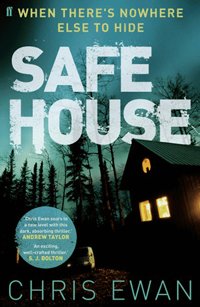
Safe House and now Dark Tides are much more serious than your Good Thief’s Guide series. Why the change and in what ways have you adapted your style?
I always find that tone is the hardest thing to get right when I sit down to begin work on a new book. Voice is something you can’t fake — it has to be authentic to the story you want to tell. I loved writing the Good Thief mysteries, and I hope some day soon I’ll have an opportunity to write some more, but I moved on to Safe House because at the time it was the story I was itching to tell. Fortunately, the book did well, and I was able to write more thrillers. And yes, that involved a change of style, but only to fit with the story ideas I wanted to tell. I shaved away some of the more overt humour and I think my writing has become a little more clipped, though recently I wrote a Good Thief short story and I found I could slip back into the voice and the style of Charlie Howard without too much trouble.
What’s next for you?
Next is another standalone thriller that will be due out some time in 2016. It’s about a man who sets up his own very discreet, highly bespoke witness protection scheme for people at extreme risk, and about what happens when his protection network begins to fail. The book opens in Laxey, on the Isle of Man, before moving on to multiple destinations across Europe, so it’s a big new challenge for me.







